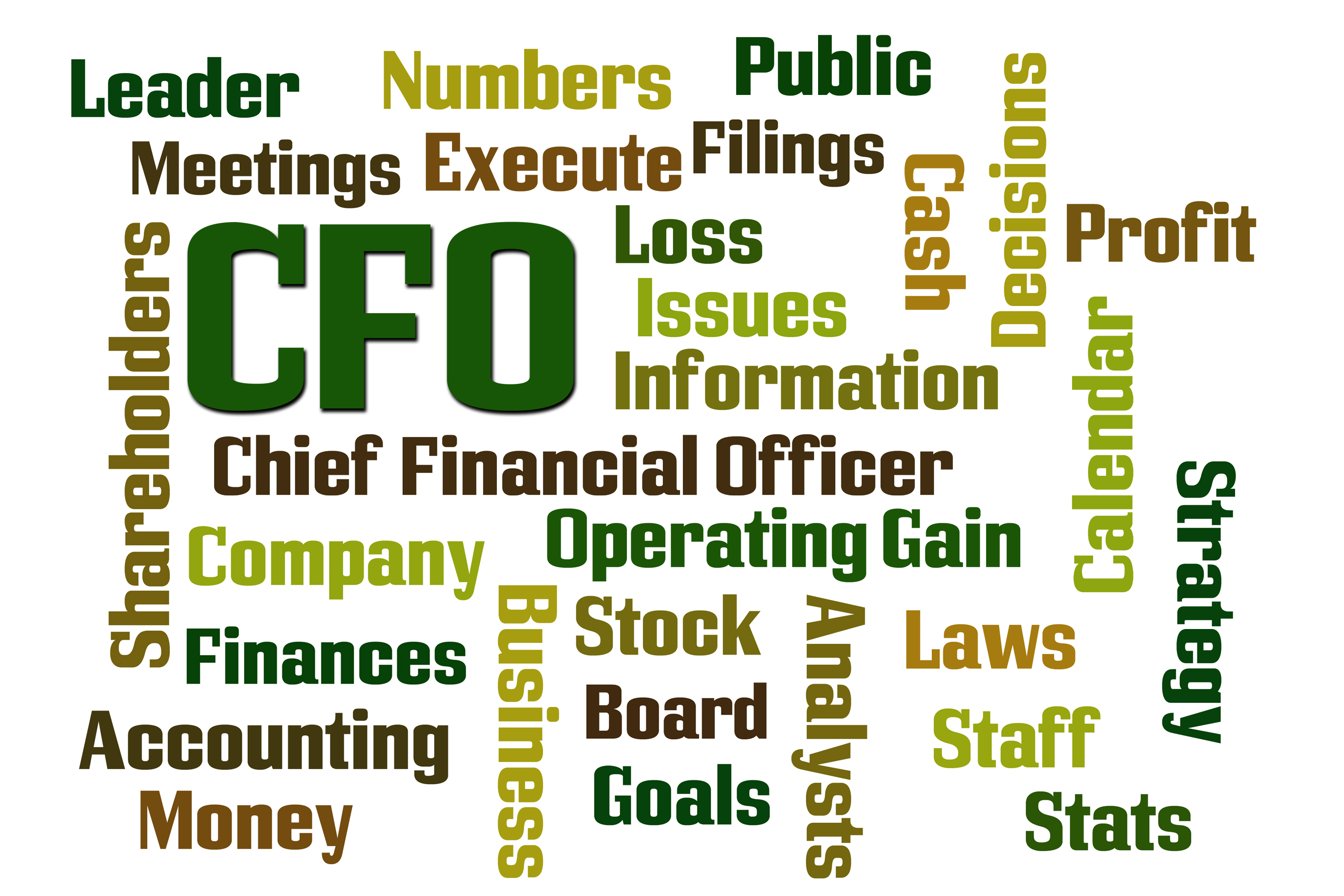
Are You Ready for a Full-Time CFO?
As a business owner, on-boarding the right people at the best time is essential, but not always easy to do. Your CFO hiring decision often comes from a decision about how much revenue your company is producing. Standard recommendations state that the average low-complexity startup will need to hire a full-time CFO when they reach $10 million in annual revenue. Yet, making the decision to wait until this point could, in fact, limit your ability to get there. Sometimes, you need the insight and information a CFO can offer long before you reach that dollar point.
There are other scenarios in which having a CFO in place, perhaps as a larger organization, may not be enough. For example, if your company is struggling to expand or to overcome key financial hardships, you may need more help – or you need a replacement CFO right away.
In both of these cases, the solution may be in hiring a part-time, rather than full time, CFO to fill in those gaps. But, who should you call? That depends on your long-term goals.
CFO Decisions: Interim Professional or Part-Time Professional?
To make the right decision about CFO hiring, consider what your problem or need is, and then seek out the solution for it. There are two main options – an interim CFO or a part-time CFO.
When Should You Hire a Part-Time CFO?
A part-time CFO is just that. This person, sometimes called a fractional CFO, is likely to remain with you long term. For those who are a startup business and need insight and guidance on a less-than-full-time scale, this is a solution. The considerations here include:
- You will get help from this professional a few hours a week.
- They will work with other companies, not just your own.
- They typically can handle most functions of a CFO including helping you with tax returns, setting up accounts, and tracking revenue reports.
- They can help a startup scale by creating cash-flow models and improving balance sheets.
- You may wish to use this service if you are hiring more employees and need to see the direct reflection on your bottom line.
Choose a part-time CFO when you are growing and expanding. Be sure this professional is there to provide specialized services to you.
When Should You Hire an Interim CFO?
An interim CFO comes in to provide short-term solutions for you. Most startups do not benefit from this. Most often, they step in to solve a problem or fill a gap. You may benefit if:
- You just lost your CFO.
- You are handling specific tasks a current CFO is unproven in, such as mergers or acquisitions.
- You need to fire your existing CFO.
- You are facing significant financial disruption.
- Your company needs a fresh financial start.
In both cases, the value of the CFO is clear. This person steps in and provides information and solutions for your company. Which type of CFO is right for your needs? Contact us at The McLinden Group to learn more.

What is Your Exit Strategy? You Need One
An exit strategy answers a key question for investors, buyers, and partners. How will you get money out of the company and how much is the company worth? Even if you have no plans to sell, you still need to have an exit strategy established.
Which Option Is Right for You?
Several exit strategy options exist. Your long-term and short-term goals determine which is best for you. Here’s a quick look, though you can find more information about exit strategies for your business available.
- Liquidate. You close up shop, sell assets, and walk away. It is simple but offers the lowest return.
- Liquidate over time. A prolonged process, this option allows the owner to maximize cash flow on an ongoing basis. However, it can reduce gain and creates taxation concerns for income.
- Pass it on to family. For some, this is ideal and the ultimate goal, but it can be difficult to create a family succession plan especially if family members are not skilled.
- Sell to employees. The company gets to go on by those who know it well and a long-term buyout and increase employee loyalty. Some employees may not have the skill to maintain it, though.
- Sell the company. The most popular option, it can be beneficial for profitable businesses that are easy to sell, but for others, there may be difficulties and valuing companies and assets is often hard to do.
- Sell to another business. Allowing your company to be an acquisition can help you to get the best in terms of profit, but some companies may buy out the company just to eliminate the competition, therefore shutting down the company in the long term.
- IPO. Some small businesses may move towards the market with an IPO, which can perhaps be the most profitable option available. There are limits to some companies, and the process is costly.
How will you leave your company? Outlining these areas can give you a sense of direction, but it also helps employees, partners, and even your investors know what the future holds. This can directly impact your business model as well.
What Does It Take to Get a Small Business Loan?
The old adage, which says that the best time to get a small business loan is when it is not needed is basically true. The worst time to seek a business loan is when a business is desperately in need of cash.
Many business owners find it difficult, if not impossible, to grow their business without the benefit of outside financing. Clever business owners apply for a business loan when things are going well and when there is no real pressure to have the use of the funds.
Entrepreneur notes that unless a business owner of a small business has a perfect credit history and a top credit-rating score, they will probably be wasting their time trying to get a business loan from a bank.
Here are the basic requirements for bank loans that are backed by the Small Business Administration (SBA), microloans from non-profit groups/associations, and alternative lenders:
SBA-Backed Bank Loan
These loans require having an excellent personal credit history with a credit score of 680 or higher and having two+ years in business. The business needs to have annual revenues of $50,000 to $150,000. Banks want to see that there is sufficient income to cover 1.25 times the expenses. An SBA loan can be from $5,000 to $5,000,000. The average SBA loan is $371,000.
Microlenders
These loans are usually for a short-term and for around $35,000 or less. The annual percentage rate (APR) is higher than bank loans. To qualify, a business must be prepared to submit a detailed business plan and accurate, up-to-date, audited financials.
Alternative Lenders
There are alternative lenders; however, usually the APR for an alternative loan is much higher than bank rates or the rates charged by microlenders. Some business owners with less than stellar credit need to rely on things such as borrowing against receivables (factoring) or advances against credit card receivables. Interest rates for these loans can be very high and they should only be considered as a last resort.
Conclusion
Business owners are well-advised to set up a business loan well in advance of any need because the process can be lengthy, frustrating, and the required paperwork extensive. Careful consideration of the circumstances is warranted before taking out a business loan. It is important to recognize the potential positive outcomes and weigh them carefully against any possibility of unfortunate negative results from the use of the borrowed funds and not having the ability to pay them back.
Five Steps To Take To Sell Your Company
Businesses benefit by having a long-term strategic plan for the company’s growth, which usually includes an “exit strategy” for the founders and the early investors. Some take the route of having as a goal an Initial Public Offering (IPO). Others find it more advantageous to sell the company. Let’s assume the goal is to sell the company and to maximize the amount received from the sale.
Here are five steps to take, as recommended by an article in Forbes, to get a company ready for sale:
Get all the Accounting Records in Order
Nothing is more important than having accurate and up-to-date accounting records when putting up a business for sale. A potential buyer wants to know what the business looks like from the owner’s perspective by careful examination of the accounting records as part of the due diligence process. When preparing a company for sale it is important to have a clean set of audited financial records to show to potential buyers.
Fire the Owner
If the owner is you, it is time to fire yourself. A company that is a good candidate for acquisition needs to be able to operate without the direct day-to-day participation of its existing owners. If a company will not run properly without an owner’s involvement then it is not a company that can be sold, unless the existing owner(s) stays on to continue to run things.
Show the Growth Path
One of the most convincing reasons for selling a company is that there are economies of scale that can make a business more profitable when it becomes a part of a larger enterprise. By demonstrating a clear path for the company to grow, potential buyers will be encouraged to make the acquisition.
Improve Customer Diversification
If a majority of a company’s sales come from a few customers, it is time to diversify the customer base. Concentrating on new customer acquisitions to remove the risk of relying on revenues from a smaller customer base makes the company more solid.
Upgrade Systems and Procedures
Make sure all systems and procedures are up-to-date and that the company follows the best practices for the industry. Have a third party consultant come in to do a brutal analysis of the company’s weaknesses in these areas and then make the recommended changes.
Conclusion
Taking these five steps before putting a company up for sale will help maximize the selling price. Following these recommendations means that the existing owners will not have to accept a deep discount from the asking price because the company is not as attractive to potential buyers as it could be.

Top 7 Benefits of Outsourcing Your Bookkeeping Operations
As a small business owner, you’re bound to wearing many different hats. When faced with so any things to do, you have to make sure the most important priorities are being taken care of. Your bookkeeping is one of those priorities. If you’re not financially savvy, you may want to consider outsourcing those tasks to a pro. Here’s why:
- Cost
You save money because you don’t have to pay a part- or full-time employee to do it. This comes in handy, especially when you can’t afford it. You ensure your books are right, and maintain your productivity.
- Time
You have more time to concentrate on those other hats you are wearing.
- Expertise
Why not defer those tasks to an expert? The laws are always changing, and you need to make sure you are in total compliance and your taxes are being paid.
- Focus
Finance can be funny. You want to make sure your finances are being handled in the right environment so your bookkeeper won’t have any distractions. You will be able to concentrate on your clients and their needs.
- Access
With a bookkeeper, your finances will be monitored on the top systems in the business. Why pay to continually update software as an added cost when you will always have your finances done with the best when using a bookkeeper.
- Quality staff
If you’re using a bookkeeping service, your finances will be handled by an entire staff. You will have the best eyes on your business as if you had your own in-house personnel.
- Scalability
You can scale without a moment’s notice and your bookkeeper will be able to handle it. As you grow, they will be able to help guide you down the right path and implement those things that you need. It takes the learning curve out of the equation and allows you to grow with ease.
It can be hard delegating and trusting your business finances to someone else, but when outsourcing to a professional, you are bound to come out as a winner.

